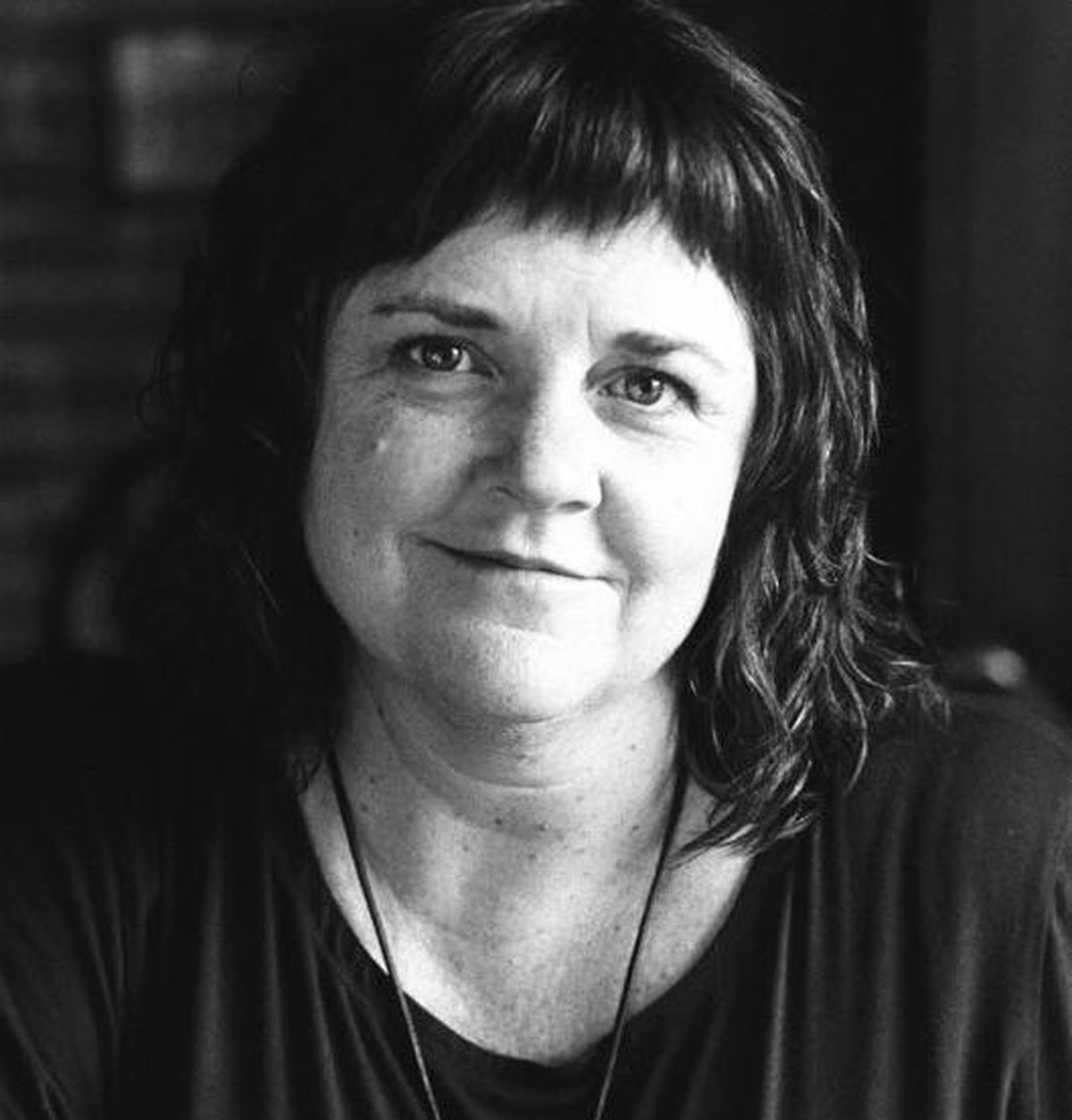‘Unconventional Beauties’: Auntie’s reading brings together three YA authors whose characters go beyond the stereotype

When Spokane author Kris Dinnison wrote her young adult novel “You and Me and Him,” she didn’t set out to write about underrepresented characters.
“I was following the age-old advice authors are always given: write what you know,” Dinnison said.
And sometimes what you know isn’t what society would have you think of as conventional. “I have always struggled with not having an ideal body, with weight and size and how much space I’m allowed to take up in the world. So I knew my main character, Maggie, would struggle with those things too.”
Dinnison is one of three authors who will be at Auntie’s Bookstore at 7 p.m. Saturday to read from their work and discuss the idea of “unconventional beauties” – teen characters who don’t fit traditional molds.
“We hope to cover the wide scope of why these characters aren’t neat pegs in society’s box,” said Portland’s Brie Spangler, author of “Beast,” whose title character earns his nickname for his hairiness and ungainly size.
Dinnison and Spangler will be joined Saturday evening by Portland’s Whitney Gardner, author of “You’re Welcome, Universe,” whose main character is a deaf girl being raised by two moms.
According to Spangler and Dinnison, it was Auntie’s employee Heather Smith who brought these three authors together, but the larger concept of illuminating “unconventional beauties” is on the rise.
“There’s a big movement in children’s and YA lit right now called We Need Diverse Books,” Dinnison said. “The idea is that we need to tell stories about lots of different ways to be a human.” This happens in two main ways: “mirrors” and “windows.” Diverse characters create mirrors “so all kids can see themselves in the stories they read,” and they act as windows as readers “look into lives that are different from our own and understand them better,” Dinnison said.
The three books being presented Saturday offer windows and mirrors in abundance. As Dinnison’s character Maggie struggles with body image, she also navigates the pitfalls of teen friendship and heartache as she and her best friend, who is gay, fall for the same boy.
“I didn’t want it to be a transformation story,” Dinnison said of Maggie. “I didn’t want it to be one of those books where the character loses weight, or gets a makeover, or wears contacts instead of glasses and all of a sudden all the pain and problems go away. I’m not sure I was really trying to say anything important. I think I was sort of sending a love letter back to my teenage self, telling her she didn’t have to worry so much about all the things they tell us we should worry about, because ultimately those aren’t the things that matter the most.”
Gardner’s “You’re Welcome, Universe” centers on Julia, who is artistic, tough, competitive… and also deaf. Gardner’s portrayal shows “challenges I hadn’t considered before,” Dinnison said. “It has an effect on how you deal with how you approach communicating with a deaf person the next time you encounter one.”
And the full scope of Julia’s character reminds readers that people who are differently abled are also 100 percent human. “The stereotype might be that differently abled people are patient and gracious and sort of saintly,” Dinnison said. “But Julia is this wonderful sort of kick-butt character who has no patience for the nonsense she sees around her.”
The title character in “Beast,” Spangler’s novel, “sees himself as unacceptable because he doesn’t look the way the world wants him to,” Dinnison said. “This is a human problem, especially in a world where the media images and messages about how we’re supposed to look and act and be have gotten both noisier and more carefully curated.”
Spangler creates another striking character in Jamie, a transgender girl. “She’s very honest about who she is, and she’s already worked hard on a lot of the really difficult parts of her transition. But she’s also a teenage girl who’s trying to find a guy to connect with. She’s vulnerable to having her heart broken in all the same ways anyone is,” Dinnison said.
Dinnison is looking forward to reading with Spangler and Gardner, but she’s even more excited for the dialogue Saturday’s event has the potential to spark. “I’m just so excited to have a conversation not only about unconventional beauty, but also about the place a person’s beauty should actually hold in our values and conversations,” she said. “I feel like every time we spend energy on comparing and contrasting and critiquing what people appear to be on the outside, we lose energy that can be spent on creating real connections and solutions in the world.”
For Dinnison, Saturday’s event couldn’t come at a more significant time. Topics of diversity are “so important right now as we see people in positions of power giving tacit permission for the country to devalue people who are different,” she said. “I’m thinking of things like the threat of repealing ADA protections for students in public schools, and the famous ‘bathroom laws’ that not only force transgender people into dangerous situations, but also take away penalties for discriminating against LGBT people. I think about the statements some of the most powerful people in our country have made devaluing people for the way they look, or how much they weigh, or what their hair looks like, or what color they are, or what gender they might be. There are so many messages right now that say it’s OK to dehumanize people who don’t fit the mold. And I think that’s dangerous. I think the only way back from that path is to make people see each other as human despite, and because of, their differences. The best way I know how to do that is through stories.”